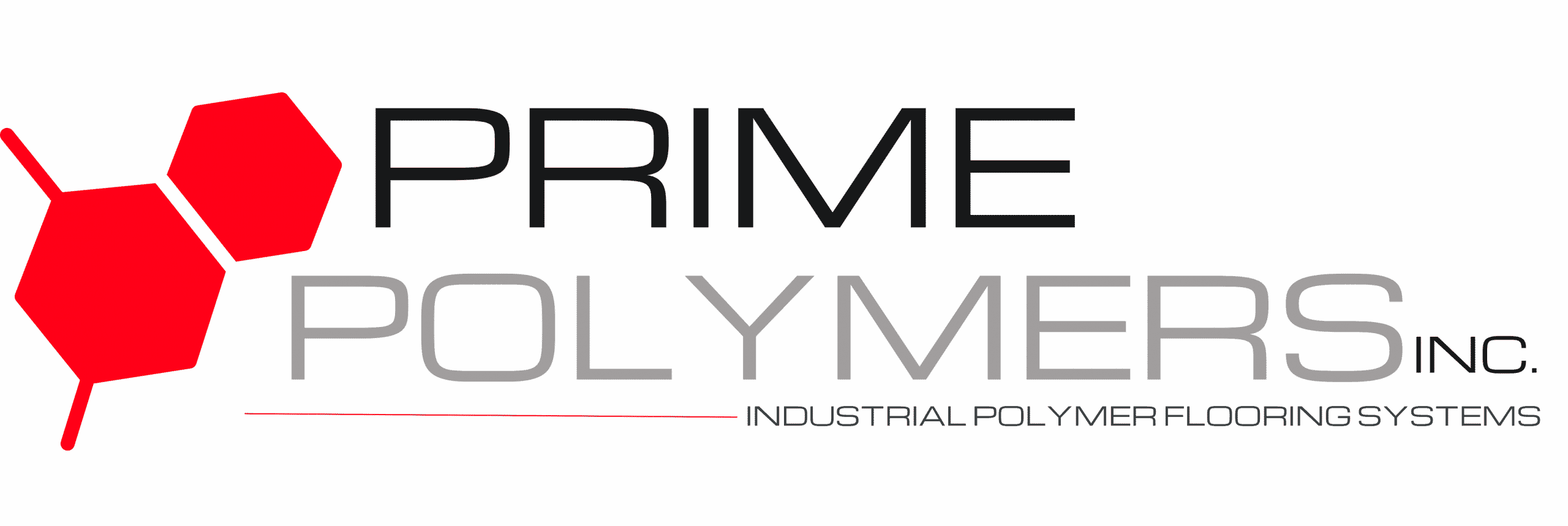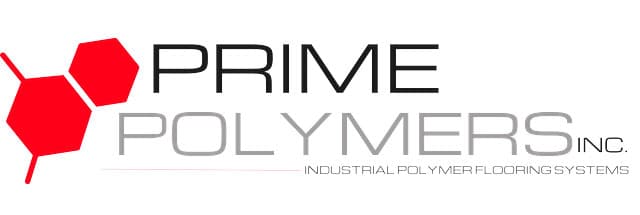Thermal Shock Resistant
What does thermal shock resistant mean?
A material that is resistant against thermal shock can resist rapid and sudden changes in temperature.
For instance, a common occurrence that produces a thermal shock in a material is a temperature or thermal gradient. A thermal gradient causes random expansions at various points within the flooring material. This phenomenon creates areas of stress and strain on the material at multiple points, thus rendering it susceptible to fracturing and potentially becoming unsafe.
Thermal shock resistance is the property of a material that makes it resistant to sudden and rapid temperature changes. Materials that have high thermal shock resistant properties can withstand extreme changes in temperature.
Thermal shocks are generated when materials are operated inefficiently or possess certain defects. These particular issues add stress and strain, causing the temperature at these junctions to drastically increase. This temperature increase can subject the material to fail at any point in time.
Prime Polymers’ thermal shock resistant flooring significantly reduces the chance for damage caused by severe temperature changes. The industrial floor coating experts at Prime Polymers will work with you to determine the best thermal shock resistant flooring for your facility.
Benefits:
Enhanced Durability
Shock-resistant flooring is designed to withstand extreme temperature fluctuations and thermal cycling, resulting in a longer lifespan compared to standard flooring materials.
Safety
Shock-resistant floor coating reduces the risk of slips, trips, and falls in industrial settings by maintaining a stable, and slip-resistant surface – even when exposed to rapid temperature changes.
Protection for Concrete Substrates
Flooring with thermal shock-resistance acts as a protective barrier for an underlying concrete substrate. This will prevent cracks, damage, and deterioration that are commonly caused by extreme temperatures.
Hygiene and Cleanliness
In food processing and healthcare industries, this type of floor coating material helps to maintain high hygiene standards by resisting cracks. As such, this prevents bacterial growth for occurring in the crevices of the cracks.
Low Maintenance
Minimal maintenance is required for this type of flooring because of its resistance to damage from thermal shock. This reduces the need for costly repairs and replacement.
Reduced Downtime
Thermal shock resistant flooring will endure extreme temperatures variations, and thus minimizes downtime caused by flooring issues that may arise from temperature changes. This affords industrial businesses uninterrupted operations.
These benefits make thermal shock-resistant flooring a valuable investment for industries, providing both practical advantages and peace of mind in environments with extreme temperature fluctuations.
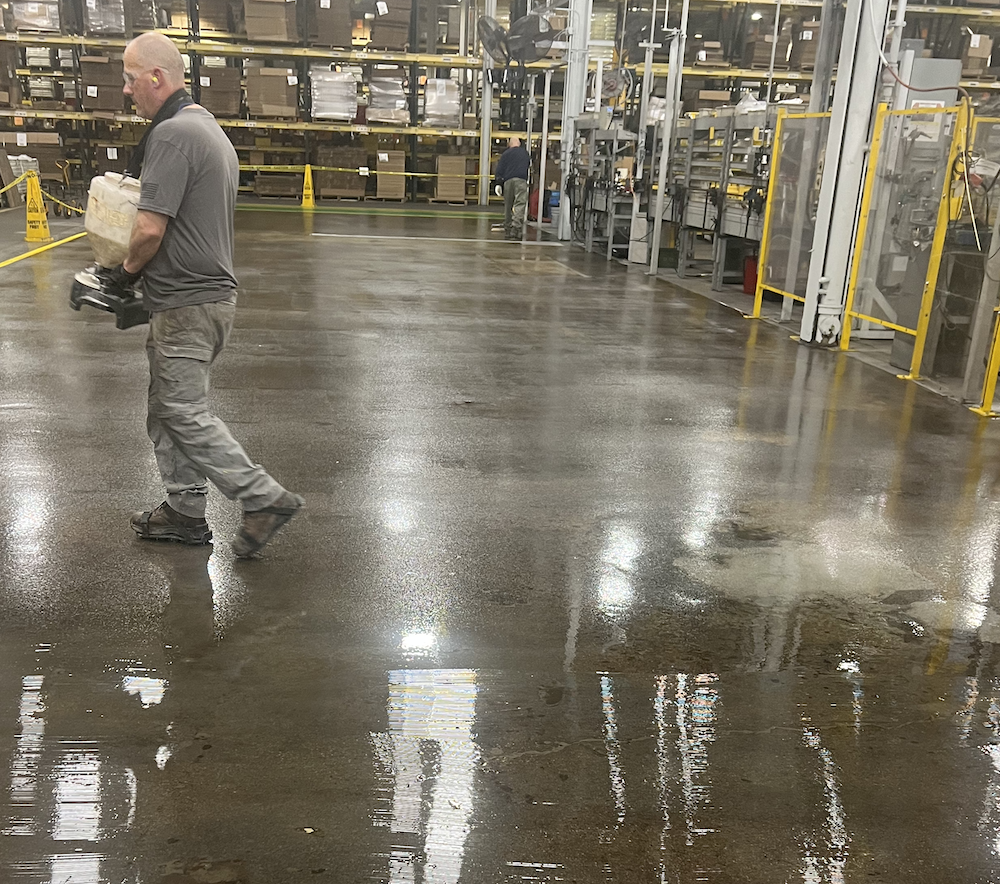
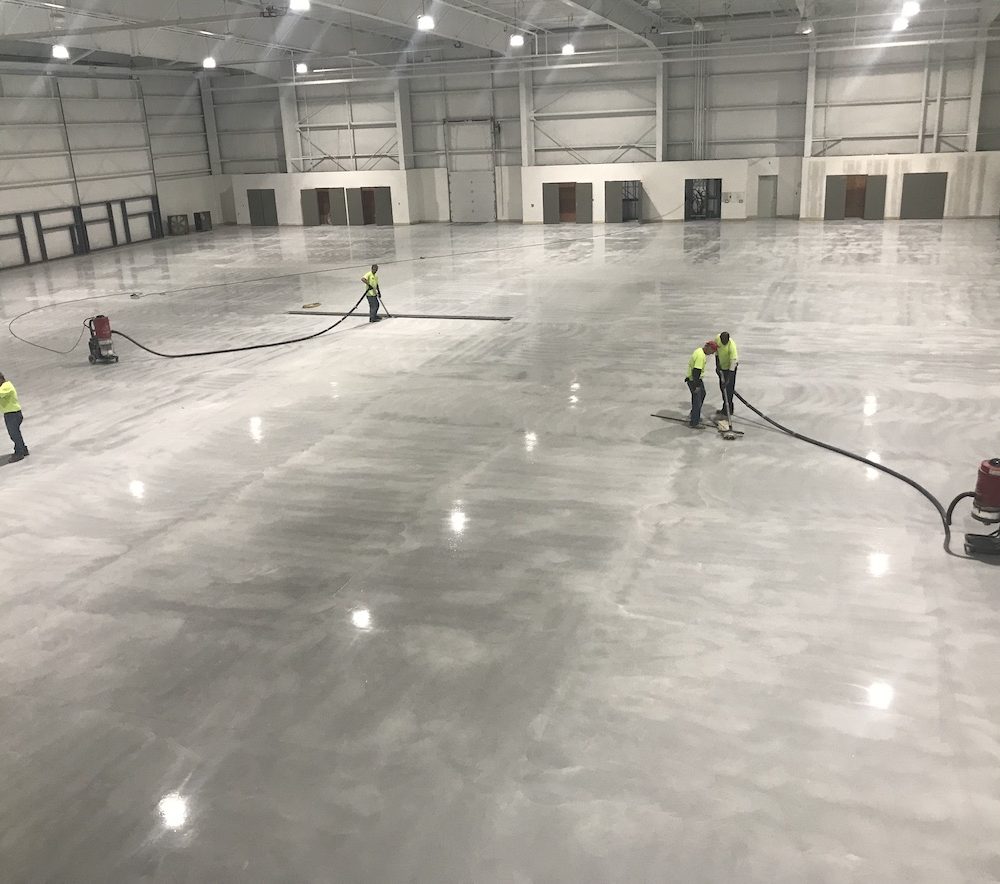
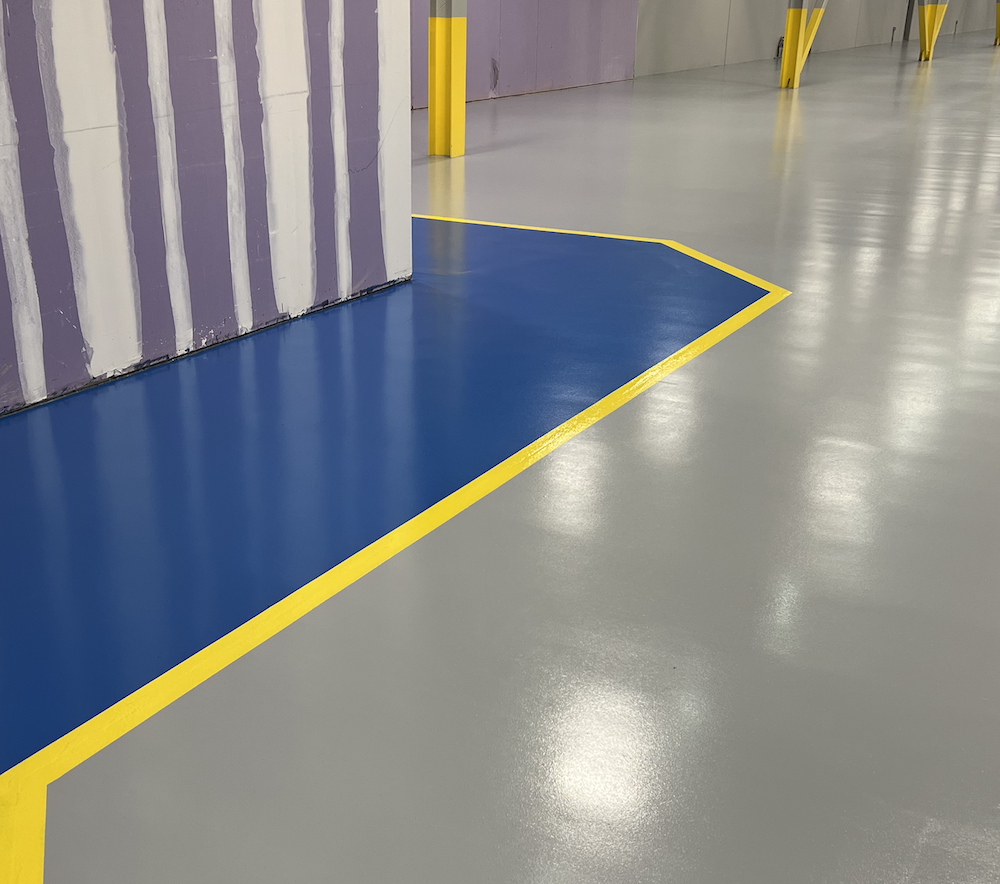
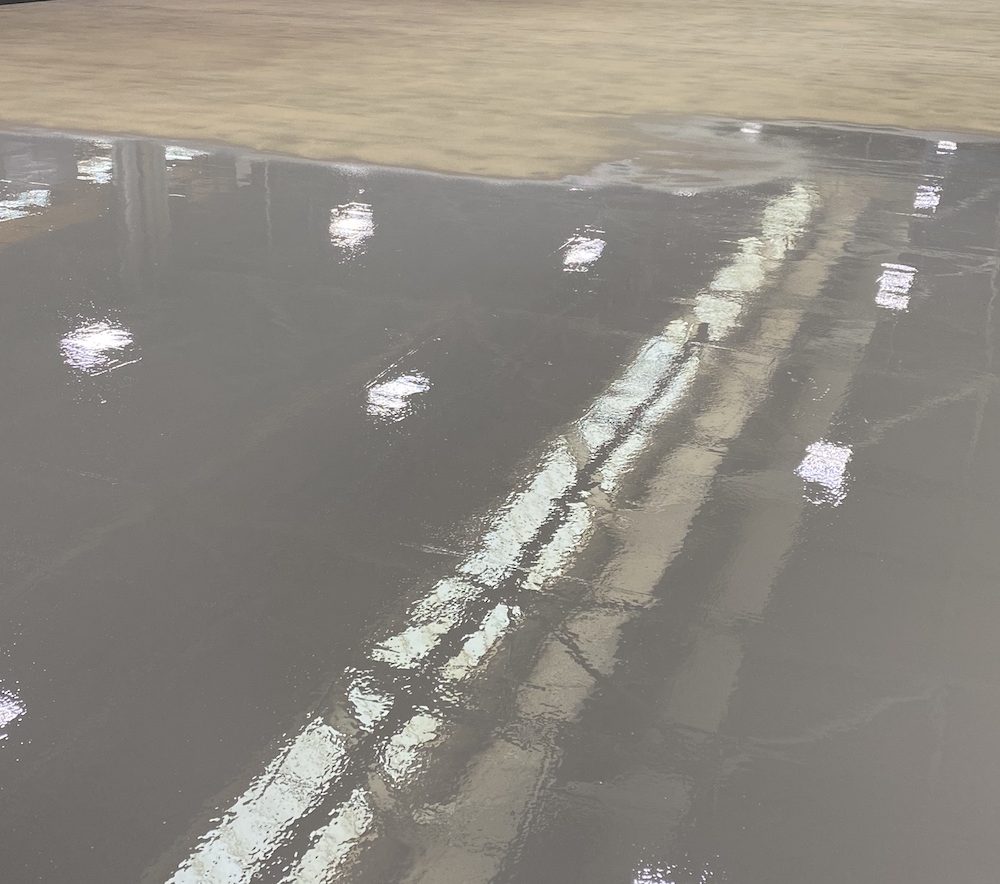
Thermal shock resistant flooring is a great solution for:
- Commercial Kitchens: Commercial kitchens are dynamic environments with a constant interplay of hot equipment, cooking processes, and frequent cleaning with cold water. Having temperature shock-resistant flooring is essential to withstand these extreme hot and cold fluctuations caused by ovens, and industrial freezers. The durable flooring material also protects the concrete substrate underneath, ensuring both safety and long-term durability in a demanding setting where hygiene and slip resistance are paramount.
- Cold Storage Facilities: Facilities used for cold storage are designed to maintain extremely low temperatures, often well below freezing. Such extreme cold can cause traditional flooring materials to crack and become unsafe. Shock-resistant flooring solutions are indispensable in these environments, preventing damage caused by the sharp contrast between the cold storage areas and normal ambient temperatures.
- Low Temperature Manufacturing Plants: Industries engaged in low-temperature manufacturing, such as pharmaceuticals and electronics, require flooring solutions that can endure significant temperature variations and extreme temperatures. Having floors that can withstand these temperatures is crucial to prevent structural damage, and to maintain a stable production environment.
- Meat Processing Plants: Meat processing facilities must maintain strict hygiene standards, and their operations necessitate the use of hot water for cleaning, and cold storage. It is essential for meat processing plants to prevent cracks and contamination, which are safety hazards in environments where sanitation and product quality are paramount.
- Food and Beverage Manufacturing Plants: Similar to meat processing, food and beverage manufacturing plants rely on hot water for cleaning. Plants often have areas with varying temperatures due to hot ovens, commercial ovens, as well as an industrial freezer. In processing areas, shock-resistant coatings are vital to uphold sanitation, worker safety, and the integrity of the products being produced.
- Weld Shops: Welding generates intense heat, which can cause conventional flooring materials to deteriorate rapidly. It is important to have flooring that can withstand the heat without cracking. Shops must ensure a safe and robust surface that will endure extreme temperature fluctuations, and the mechanical stresses associated with welding operations.
- Automotive and Manufacturing Facilities: Industrial environments, including automotive manufacturing plants, are home to high-temperature equipment and rapid cooling processes. Flooring that is made to endure these fluctuations safeguards the facility against temperature-related damage, and contributes to employee safety and productivity.
- Chemical Processing Plants: Chemical processing plants’ production operations may involve extreme temperature variances. Thermal shock-resistant flooring is indispensable for preserving the structural integrity of the floor. and mitigating safety risks in settings where chemical reactions and processes occur.
- Brewery and Beverage Production: Breweries and beverage production facilities frequently use hot water for cleaning and maintain specific temperature-controlled areas for brewing processes. The floors need to maintain hygiene standards, product quality, and workplace safety.
- Pharmaceutical Manufacturing: When manufacturing pharmaceuticals, precise temperature control is a must, as production often involves high-temperature processes. Installing shock-resistant flooring to better manage temperature variations, plays a critical role in maintaining a sterile environment, and ensuring product purity. This type of floor coating also protects the expensive equipment in this highly regulated industry.
- Aerospace Manufacturing: Aerospace facilities may experience temperature fluctuations during various production phases, such as heat treatments and precision machining. Thermal shock-resistant flooring helps to ensure the highest quality standards in aerospace production.
- Research Laboratories: Laboratories engaged in scientific research may require controlled temperatures for experiments and equipment, leading to thermal cycling challenges. There is precisely why shock-resistant flooring is necessary. It is essential to safeguard the integrity of experiments, protect valuable research equipment, and maintain the safety of researchers and laboratory personnel.
These industries, and others, benefit from the versatility of thermal shock-resistant flooring. Companies must address specific challenges, protect their concrete substrates, and contribute to safety, hygiene, and operational efficiency of their business.
Prime Polymers’ team of industrial flooring experts have years of thermal shock resistant floor coating experience. Our installation teams are highly trained, and have installed hundreds of thousands of square feet of thermal shock flooring in a host of industrial and commercial facilities.
Call Prime Polymers today to discuss your thermal shock resistant flooring project!
